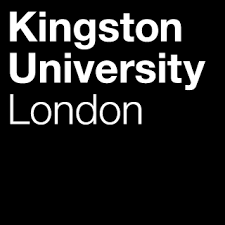High Dependency Neonatal Care

04 Dec 2024 (Intake closed)
Apply by: 25 Nov 2024
New Session
04 Dec 2024 (On Campus), 11 Dec 2024 (Online), 18 Dec 2024 (On Campus), 08 Jan 2025 (Online), 15 Jan 2025 (On Campus)
30 Apr 2025 (Intake closed)
Apply by: 21 Apr 2025
New Session
30 Apr 2025 (On Campus), 07 May 2025 (Online), 14 May 2025 (On Campus), 21 May 2025 (Online), 28 May 2025 (On Campus)
Course overview
This module is the third of four modules for nurses and other registered healthcare professionals working in the neonatal unit that will enable the practitioner to be recognised as qualified in speciality (QIS). The delivery of neonatal care to the high dependency infant is dependent both on the clinical skills of the practitioner and the development and maintenance of therapeutic relationships with the parents and the multi-disciplinary team through the use of appropriate communication and interpersonal skills. The module content will be system and assessment led and will address recognition of the deteriorating neonate and appropriate management strategies.
Aims
This module will enhance students’ ability to recognise the deteriorating neonate using a systems approach. It will develop the specialist skills needed to deliver high dependency care and understanding of the impact of high dependency neonatal care on the infant and family.
What and how you will learn on this module
How you will learn
This module is delivered using a blended learning approach which integrates a variety of on-campus and online activities, supported by Canvas, the University’s virtual learning environment. A complementary range of activities are employed to engage you in the critical exploration of key topic areas, and the completion of formative tasks during the module also helps to keep you on track with the learning and gain feedback on your understanding of the content. A sense of community is developed and maintained with frequent opportunities for peer learning, enabling you to share your practice experiences and to learn from each other.
Academic writing and critical thinking skills are developed through ‘The Critical Thinking Skills Toolkit’ and other academic practice activities embedded within the module, that have been designed to nurture the skills needed to facilitate you to become a thoughtful, objective and reasoned thinker. This will help you tackle the assignment(s) confidently, understand marking criteria, use evidence, take a reasoned approach, make structured arguments and engage with other points of view.
What you will learn
Ventilation
• Non-invasive respiratory strategies/developments and associated nursing care
o CPAP
o High Flow Nasal Cannula
• Tracheostomy
Nursing management of related pathophysiology of infants requiring High Dependency Care
• Multisystem assessment skills
• Interpretation of neonatal x-rays
• Blood gases and interpretation
• Respiratory physio and chest care
• Central Venous Catheters
• Patent ductus arteriosus
• Congenital Heart Disease
• Total parenteral nutrition and Central Lines
• Necrotising Enterocolitis
• Stomas and Stoma Care
• Neural Tube Defects
• Hydrocephalus
• Birth Injuries
• Pain assessment and management in HDU
Pharmacology and Pharmacodynamics Family-Centred Care
• Parental / Family needs, support and services
Ethical/Professional perspectives and decision-making
Stress In the Neonatal Unit- Developing coping strategies and accessing support
Academic practice
• Database searching
• Evidence-based practice
• Referencing and avoiding plagiarism
• Critical Thinking Skills Toolkit
Course length: 5 Teaching Days
Assessment
Reflective essay (2000 words) and Competency assessment document (CAD)
Learning Outcomes
Demonstrate critical awareness and reflection of the skills required for the neonatal nurse to work together with the family to provide safe, patient-centred and family integrated care in a high dependency care setting.
Critically discuss the range of support services available to meet physical and psychosocial needs of infants and families and facilitate their use.
Explore a wide range of evidence based research, ethical / professional issues and decision making underpinning the assessment and care of the infant in high dependency setting.
Examine the innovations and new modalities in care and critically analyse the benefits/disadvantages of innovations.

Course details
Course leader
Kathleen Mangahis
Administrator
Kingston WFD Admissions Team
Course delivery
Blended Learning. On-Campus sessions subject to change. If government advice changes, we may need to update our plans. If we do so, we will update this information, and will keep current students and offer holders informed by email.
Downloads
Prerequisites
Programme entry requirements
Applicants should have successfully completion Applied Neonatal Pathophysiology and Neonatal Special and Transitional Care modules or equivalent.
Funding
£1,156.00

Make an enquiry
Make an enquiry
